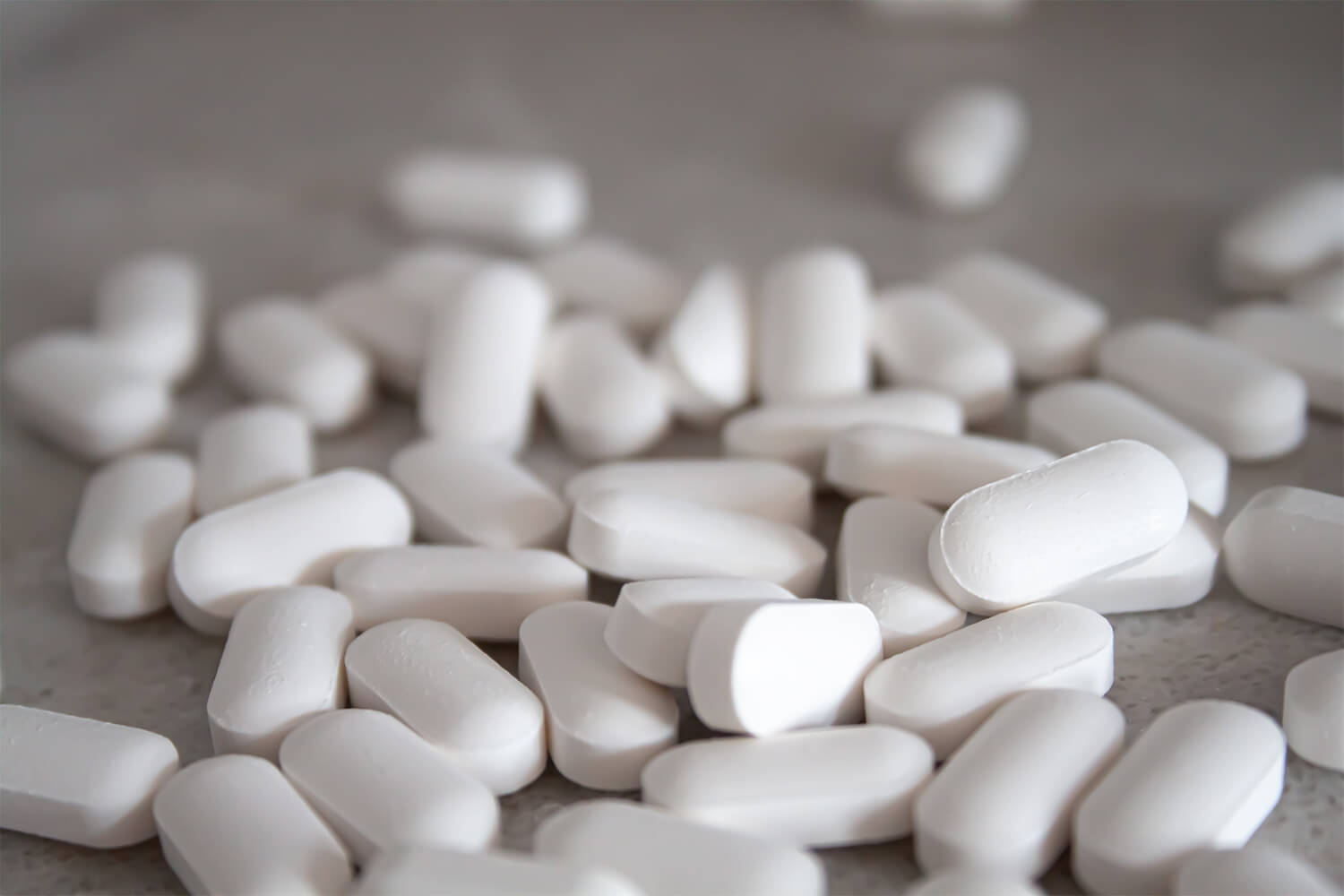Written by Ashley Kane,
Brightside Health
9 Minute Read

Medically reviewed by:
Christopher Betley, PMHNP
Clinical Director, Psychiatry
10 Minute Read

Is Zoloft for anxiety and depression? Yes, this medication is one of the most widely prescribed treatments for people seeking relief from the symptoms of anxiety and depression.
Also known by its generic name sertraline, Zoloft belongs to a class of medications called selective serotonin reuptake inhibitors (SSRIs)that boost serotonin levels in the brain.
Is Zoloft for anxiety or depression? Does Zoloft treat anxiety? It is FDA-approved to treat multiple conditions, including depression, panic disorder, and PTSD, and is frequently prescribed for generalized anxiety as well.
In this article, we’ll explain how Zoloft works, who it’s for, what benefits and side effects to expect, and how to decide if it’s right for your treatment plan.
What Is the Medication Zoloft?
Zoloft is the brand name for sertraline, a type of antidepressant classified as a selective serotonin reuptake inhibitor (SSRI).
What Is Zoloft Used For?
Does Zoloft help with anxiety? Is Zoloft good for panic attacks? The FDA has approved Zoloft to treat major depressive disorder (MDD), panic disorder, social anxiety disorder, obsessive-compulsive disorder (OCD), post-traumatic stress disorder (PTSD), and premenstrual dysphoric disorder (PMDD).
Zoloft is also used off-label for generalized anxiety disorder (GAD) and other conditions where serotonin imbalance plays a role.
Is Zoloft Good for Depression and Anxiety? Zoloft Benefits
Does Zoloft help with depression?
Yes—Zoloft is widely considered effective for reducing depressive symptoms and is often one of the first medications prescribed.
Improves Mood and Emotional Regulation
Zoloft increases serotonin levels in the brain, which helps regulate mood, reduce negative thoughts, and increase emotional resilience over time.
Reduces Anxiety Symptoms
Is Zoloft good for anxiety? Multiple studies have shown that Zoloft helps reduce excessive worry, panic attacks, social fear, and physical tension.
It’s often used for both depression and anxiety, making it a versatile treatment option.
Helps With Panic and Intrusive Thoughts
Zoloft for panic attacks and OCD is FDA-approved.
It can decrease the frequency and intensity of panic attacks as well as obsessive thoughts and compulsions.
Want to speak 1:1 with an expert about your anxiety & depression?
Low Risk of Sedation or Weight Gain
Compared to other antidepressants, Zoloft typically causes less daytime drowsiness or weight gain, which may make it more tolerable for some people.
Long-Term Safety Record
Zoloft has been in use for over 30 years, with decades of research confirming its safety and efficacy.
How Does Zoloft Work for Anxiety and Depression?
How does Zoloft help anxiety and depression? Zoloft blocks the reabsorption (reuptake) of serotonin in the brain, making more serotonin available for nerve signaling.
This helps improve communication between neurons and boosts the brain’s ability to manage mood, fear, and stress.
As serotonin levels stabilize, people often feel calmer, less reactive to stress, and more balanced emotionally.
What to Consider Before Taking Zoloft for Depression and Anxiety
As with any new medication, there are certain factors to consider when starting on Zoloft.
Risk of Side Effects in Early Treatment
Some people experience nausea, diarrhea, fatigue, or increased anxiety in the first 1–2 weeks.
This is typically temporary and tends to improve as your body adjusts.
Zoloft Increased Anxiety (Initially)
Zoloft can make anxiety feel worse before it gets better.
This is a known short-term effect as serotonin levels shift, but it usually resolves within a few weeks.
Pregnancy, Nursing, and Age
Talk with your provider if you are pregnant or breastfeeding, or if you are under age 18 or over 65, as special precautions may apply.
Drug Interactions
Tell your provider about any other medications, supplements, or substances you use regularly.
Zoloft can interact with blood thinners, MAOIs, and certain migraine medications.
Risk of Suicidal Thoughts in Young Adults
As with all antidepressants, there is a small increased risk of suicidal thoughts in teens and young adults during early treatment.
Close monitoring and open communication with your care team can help ensure safety.
How to Use Zoloft for depression
Zoloft is taken once daily, with or without food.
Doses typically start at 25 mg or 50 mg and may be gradually increased to 100–200 mg depending on response and tolerability.
It’s important to take Zoloft consistently each day at the same time.
Some people prefer taking it in the morning to avoid possible sleep disruption, while others take it at night.
Ask your provider about the best time of day to take Zoloft for anxiety in your specific situation.
How Soon Does Zoloft Treat Depression?
Many people notice small improvements in sleep, energy, or appetite within 1–2 weeks.
However, the full mood-lifting effect of Zoloft typically takes 4–6 weeks or longer.
If you’re not feeling better after 6–8 weeks, your provider may adjust the dose or recommend a different treatment.
How Long Should You Take Zoloft for Depression and Anxiety?
Most clinicians recommend staying on Zoloft for at least 6–12 months after symptoms improve to help prevent relapse.
For people with chronic or recurrent depression or anxiety, longer-term use may be appropriate.
Never stop taking Zoloft abruptly.
Work with your doctor to develop a tapering plan when it’s time to stop.
What Are the Side Effects of Zoloft?
It’s important to be aware of the possible side effects of Zoloft before starting this medication.
Common Side Effects
- Nausea
- Headache
- Fatigue
- Diarrhea
- Dry mouth
- Sexual side effects (reduced libido or delayed orgasm)
- Insomnia
These effects are usually mild and improve over time.
Rare but Serious Side Effects
- Serotonin syndrome (risk increases if taken with other serotonergic drugs)
- Severe allergic reactions
- Suicidal thoughts or behavior in young adults
- Abnormal bleeding (especially when combined with NSAIDs or blood thinners)
Seek immediate medical help if you experience confusion, high fever, stiff muscles, or a fast heartbeat.
Need Professional Help With Your Depression?
Whether you’re starting your first antidepressant or wondering if Zoloft is right for you, Brightside is here to help.
Our licensed providers offer evidence-based medication management and therapy, fully online.
Get matched with a care plan that fits your needs, and receive support every step of the way. From help with pornography and depression, to female or male postpartum depression, and generalized anxiety, we’re here for you.
Take the Brightside Depression Test.
Want to speak 1:1 with an expert about your anxiety & depression?
Zoloft and Depression: Key Takeaways
Zoloft continues to be one of the most trusted medications for managing both depression and anxiety.
With decades of clinical use and strong research support, it offers a reliable option for individuals looking to stabilize mood, improve energy, and regain emotional balance.
While it isn’t right for everyone, Zoloft’s effectiveness, safety profile, and flexibility make it a top choice for many.
By working with a qualified provider and following a consistent treatment plan, most people find real and lasting relief.
FAQs
Is Zoloft for depression or anxiety?
Zoloft is prescribed for both depression and anxiety. It’s FDA-approved for major depressive disorder, panic disorder, PTSD, and social anxiety, and commonly prescribed off-label for generalized anxiety disorder (GAD). It’s often used when symptoms of both conditions occur together.
Is Zoloft an antidepressant?
Yes, Zoloft is an SSRI (Selective Serotonin Reuptake Inhibitor), a class of antidepressants that increase serotonin levels in the brain. This helps regulate mood, reduce negative thinking, and support emotional stability over time.
Who can prescribe Zoloft?
Zoloft can be prescribed by psychiatrists, primary-care doctors, nurse practitioners, and online mental health providers like Brightside. You don’t need a psychiatrist to get a prescription, but a licensed professional must evaluate your symptoms.
Can you use Zoloft for panic attacks?
Yes, Zoloft is FDA-approved for panic disorder and is frequently used to reduce the frequency, severity, and unpredictability of panic attacks. Many people with panic symptoms benefit from its calming and mood-stabilizing effects.
Can you use Zoloft for GAD?
While not officially FDA-approved for generalized anxiety disorder, Zoloft is often prescribed off-label for GAD. Research shows it helps reduce excessive worry, restlessness, and muscle tension associated with this condition.
Can Zoloft make anxiety worse?
In the first 1–2 weeks, Zoloft may temporarily increase anxiety before it begins to help. This is a common short-term side effect and usually fades as your body adjusts to the medication.
How to avoid Zoloft making anxiety worse?
Start at a low dose and increase slowly under your provider’s supervision. Practicing sleep hygiene, regular exercise, and reducing caffeine can also help manage initial anxiety spikes during the adjustment period.
What is the best time of day to take Zoloft for anxiety?
Zoloft can be taken in the morning or evening, depending on side effects. Many people take it in the morning to avoid potential sleep disruption, but your provider can help determine the best time for you.
What is the usual recommended Zoloft dose for anxiety?
Most people start with 25–50 mg daily for anxiety. The dose may be increased gradually to 100–200 mg, depending on how symptoms respond and how well the medication is tolerated.
What happens if you miss a Zoloft dose?
If you miss a dose, take it as soon as you remember—unless it’s close to your next scheduled dose. In that case, skip the missed dose. Do not double up to make up for it.
What happens if you overdose on Zoloft?
Overdosing on Zoloft can cause nausea, dizziness, tremors, confusion, and rapid heart rate. Severe cases may lead to serotonin syndrome. Seek emergency medical help or call poison control immediately if an overdose is suspected.
What to avoid while taking Zoloft?
Avoid alcohol, recreational drugs, and mixing Zoloft with other serotonergic medications without your approval. Also, avoid abruptly stopping the medication, as this can cause withdrawal symptoms.
How long does sertraline (Zoloft) stay in your system?
Zoloft has a half-life of about 26 hours, meaning it takes about 5–7 days to fully clear from your body after your last dose. However, this can vary slightly by individual.










